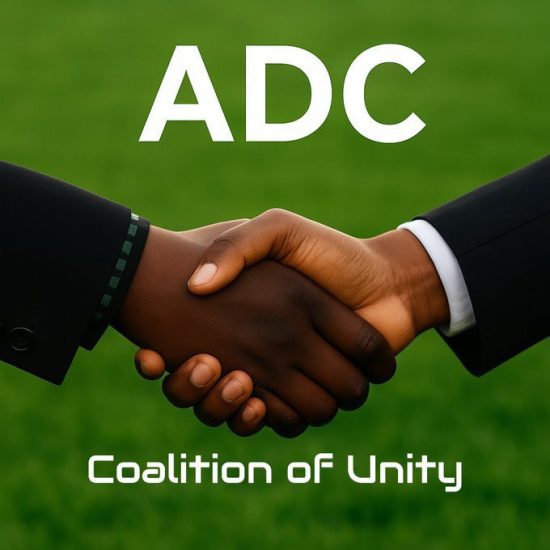There is renewed energy and hope surrounding Atiku Abubakar with the formation of the new coalition—an understandable sentiment. The heightened enthusiasm and optimism on Atiku’s face nearly betray the inner mindset of a man convinced that his time has come and that nothing can stop him.
This surge of confidence is largely due to the calibre of high-profile politicians who see the coalition as a viable alternative and are placing their faith in it. Most importantly, Atiku’s optimism draws strength from the national mood, one filled with frustration over economic hardship. Many Nigerians have lost patience and are now desperate for change. Given this context, it is hard to imagine Atiku stepping down for any other politician vying for the presidency under the ADC banner. He is the chief architect and strategist behind the ADC’s momentum and is unlikely to relinquish the spotlight when he believes he is just one step away from the presidency.
However, Atiku’s strategy is heavily reliant on support from the Muslim North, which on its own cannot secure a presidential victory. Peter Obi, another prominent contender from the Southeast, is equally unlikely to withdraw in favour of Atiku—or any other Northern candidate. Like Atiku, Obi believes it is his turn. He sees himself as a representative of the Christian community and a symbol of inclusivity and fairness. After Buhari’s eight-year presidency, many feel it is time for a Southern Christian to lead. Obi was the only Christian presidential candidate in the 2023 election, running against Muslim opponents like Tinubu, Atiku, and Kwankwaso. This earned him significant sympathy and solidarity, not just from the Christian South but also from the Middle Belt. Since then, he has become a symbol of hope for many disillusioned with the Muslim-Muslim ticket of the ruling APC.
But Obi’s possible refusal to step aside would not be rooted in religion or identity politics. The Southeast, one of Nigeria’s major ethnic groups, views repeated vice-presidential offerings as a historical injustice. They want nothing less than the presidency as a matter of equity and national inclusion. It would be a serious political misstep for Obi not to contest, just as Prof. Yemi Osinbajo challenged his political godfather, Tinubu, during the 2023 primaries. Obi’s base believes he is more entitled to the presidency, not only due to his past role as Vice President (candidate) but also because the Christian community deserves a chance to lead after Buhari’s tenure. For them, losing honourably is better than surrendering without a fight.
As for Nasir El-Rufai, he is well aware that he has little chance of winning. His role in the coalition appears to be more about self-preservation, given that he has lost political relevance both in his state and nationally. Supporting a winning coalition may offer him a path back to influence.
Rotimi Amaechi has also shown interest in the presidency. However, recognizing that Peter Obi is unlikely to accept a VP slot, Amaechi might instead be positioning himself for that role. Still, his influence in the South-South—especially in Rivers State—is limited compared to Obi’s broader appeal. The political mood in the South-East, South-South, and Middle Belt leans heavily toward backing an Igbo presidency.
Rabiu Kwankwaso is the key figure to watch. Like Obi, he has a significant influence and could shape the outcome of the next election. Yet, his absence from coalition activities has raised suspicions, especially following Ganduje’s resignation as APC Chairman. While many of Kwankwaso’s supporters are emotionally aligned with the ADC and hopeful about the coalition, he himself is pragmatic. He knows the ruling party may offer more tangible rewards. Having contested for the presidency and invested heavily in the NNPP, the only prize that would make sense for him now is the Vice Presidency.
This becomes more likely considering that Tinubu, if re-elected, would serve a final term, after which power is expected to shift naturally back to the North. Aligning with the APC and accepting a VP slot would be a strategic move for Kwankwaso. It would also appease his base in Kano, giving them hope and a sense of reward for their loyalty.
Ultimately, Kwankwaso may find greater benefit in aligning with the ruling party rather than a fragmented opposition coalition, especially if the coalition fails to produce a unified candidate. A divided opposition only strengthens the ruling party’s chances—a risk that seems increasingly inevitable.
Muhammad sent in this piece through bagudumohammed15197@gmail.com


